Industry Insiders: Meet Diane Sheets, Vocal Coach
The in demand coach also developed her own special voice tea and opened Nashville Tea Co.

In any profession, great coaching can make a tremendous difference, and singing is no exception. That’s why Little Big Town, Nicole Kidman, Casting Crowns, Jason Crabb, Diamond Rio’s Marty Roe, Natalie Grant and many others have turned to vocal coach Diane Sheets to keep them sounding good.
“To me, a good vocal coach is very much like an athletic coach or trainer for a pro athlete,” Sheets tells Sounds Like Nashville. “A singer is an athlete. The muscles that they use are their vocal chords and they have to be in tip-top shape, especially when they are singing day in and day out.”
On any given workday, singers use their voices for more than just recording sessions and concert tours. “It’s not just the time they spend on stage. It’s radio interviews, meet and greets, writing sessions, studio time and on and on and on,” Sheets says. “There are a lot of demands vocally for a singer and they really need to approach it very much like a pro-athlete would approach taking care of their body for whatever activity they are involved in whether it’s football, golf, baseball or whatever. For a singer who is very serious about getting training, there is a difference between a vocal teacher and a vocal trainer. I am a trainer. I am a coach. And though I do teach, there’s just more that is involved with it. It’s very targeted and dedicated to what exactly that particular singer is doing. It is important to understand the science behind the voice and not just voice training models and different techniques. You really need to understand the physiology behind it as well.”
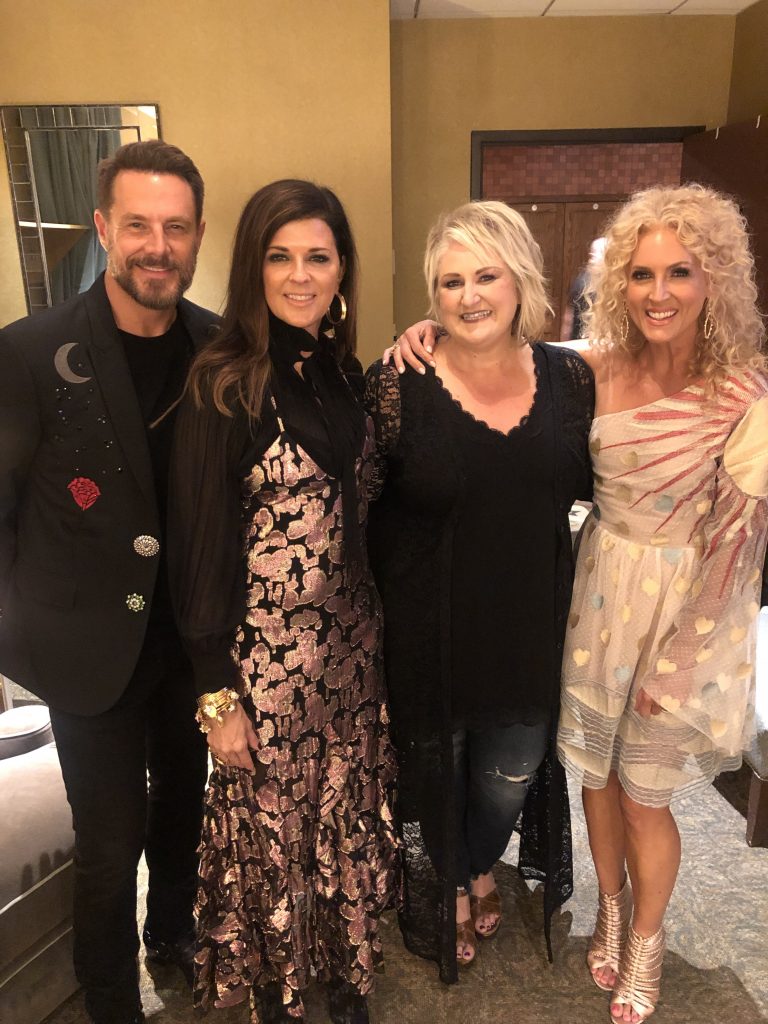
Many of the top voices in the industry rely on Sheets to help them do their jobs well. “Diane has a unique way of simplifying and explaining techniques and solutions for the voice that are so easy to put into action,” Little Big Town’s Kimberly Schlapman tells SLN. “I had acute laryngitis for five weeks a few years ago, and when I finally got well, she coached me and gave me back my confidence in my voice. After that, I thought about her every night on stage during the shows as I put her techniques into action. She’s amazing. She simply works magic on the voice and her spirit is so gracious and fun loving. We adore her!”
The feeling is mutual. “I adore Kimberly! She’s so inspiring in so many ways,” says Sheets. “First, she’s had a successful musical career because she has worked really hard. Though she’s incredibly talented, she also knows that it doesn’t just take talent, you have to keep pushing and growing to expand and maintain the gifts that you’ve been given. Plus, she’s one of the nicest and most genuine people that you’ll ever meet. Literally everyone that meets her falls in love with her. And as an entrepreneur and owner of Nashville Tea Co. and Voice Tea Inc., I’m very inspired by the way she has expanded her love for home cooked meals and Southern hospitality by sharing her passion with a greater audience. I hope to bring as much joy to people with my work, in both music and tea, as she has.”
Sheets also worked with Little Big Town’s Jimi Westbrook after he had vocal surgery. “Jimi had a polyp that he had to have removed right around the time ‘Girl Crush’ was screaming up the charts and it was a scary time” Sheets recalls. “He’s just a great person, good personality and he’s hilarious, but I love the fact that he was willing to be vulnerable and he put in the work. I don’t think he would mind me saying, but there were days when we would be working and a big portion of it was spent [with] the two of us just crying because it was scary and it was hard. But he is singing better now than he ever has. He has a falsetto that he never had before everything that he went through. I love that dude.”
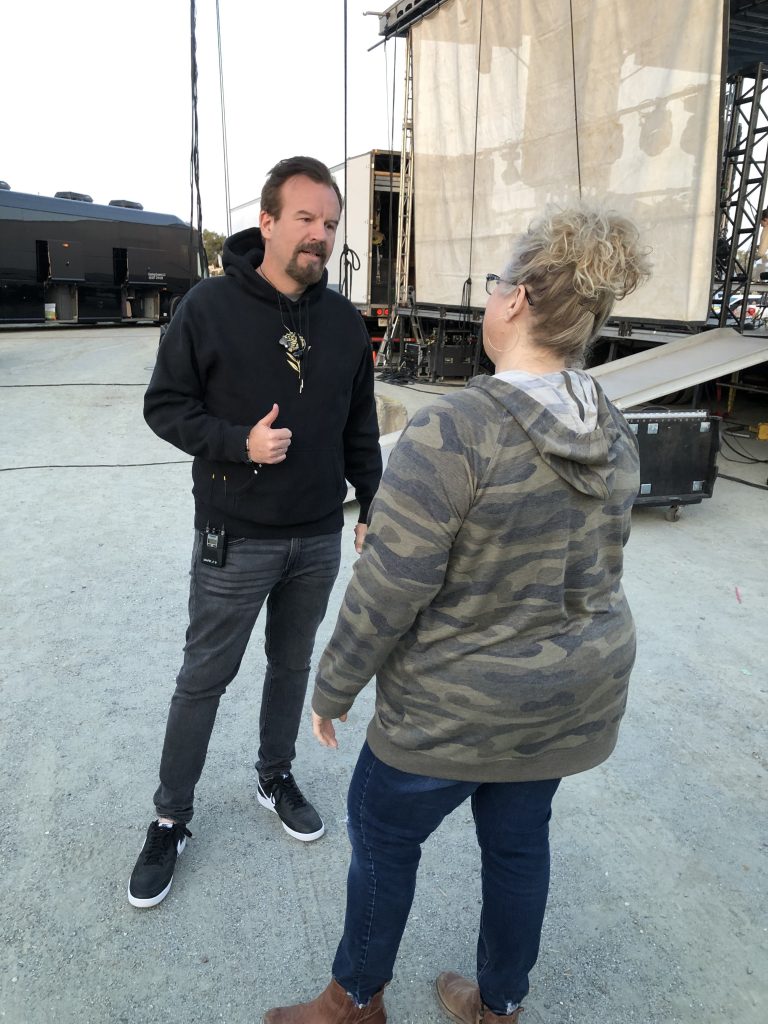
Sheets also helped Natalie Grant regain her vocal health after cancer surgery. “Diane has all the technical knowledge, but it goes way beyond that,” Grant says. “She is so incredibly intuitive and just knows exactly what to do. Her warm ups coupled with her specific type of laryngeal massage always makes my voice soar. After my thyroid cancer surgery, doctors said it would be at least seven months before I would be able to sing again at full strength. Diane got me back to full vocal strength after seven weeks. We trained like an Olympic athlete but she knew exactly what to do. When I think of Diane, I think she’s got all the head knowledge, but she also has what I call ‘heart’ knowledge, which is the best combination because she puts her head and heart into everything and everyone she works with.”
Sheets’ work not only benefits the artists she’s coaching, but everyone else on their team and payroll. “I work with the singer, but if a singer goes down, it’s not just them. It’s the bus drivers and the semi-truck drivers and the lighting technicians and the girl that works as a secretary [that are affected],” she says. “There’s so many people that depend on somebody’s tiny little vocal cords and they are just about as big as a nickel… It’s about people’s lives and livelihoods and I take that very seriously. I remember when I was working with Jimi and I went to their first rehearsal when they were getting ready to get back out on the road. Little Big Town’s semi-truck driver came up to me. I’d never met him before and he said, ‘I know who you are and I just want to thank you because Christmas is coming and I have kids. I have mouths to feed and I need this job, so thank you for everything you are doing.’ That was heavy.”
In addition to working with artists in Nashville, Sheets often goes on tour with artists to help kept their voices in top shape. She recently finished a West Coast tour with award-winning Christian artists Jeremy Camp and Casting Crowns. “I’ve always been afraid of vocal coaches because they seem to want you to sing like them. Part of being a singer and an artist is that you have your own unique sound,” Casting Crowns frontman Mark Hall tells SLN. “Diane has a way of helping me with the inner muscle movements and breathing when I sing that help me sing better and stronger but I still sing like me. That’s a special gift, and she’s one of the most encouraging people in my circle.”

Sheets is one of the busiest people in the music industry. In addition to her work as a vocal coach, she also sings back up in the studio and on tour with Zach Williams, who recently won a Grammy for his duet with Dolly Parton, “There Was Jesus.” Sheets has also developed her own special, healing blend of tea she calls “Voice Tea,” which has become so in demand by artists that it has turned into a thriving business. She sells it online and at Nashville Tea Co., her tea shop in Columbia, TN.
All this was much more than Sheets ever imagined while growing up just south of Columbus, Ohio as the oldest of five kids. “We grew up on a dairy farm and I was fairly young when my father passed away,” she says. “I was still in elementary school and there were three of us girls, and my mom got remarried and had two more kids later. We grew up in the church so I spent most of my growing up years doing music in church. I actually started off playing the viola in the fifth grade and I think that’s where my music sensibility was fostered in those early years, playing in orchestras and that type of thing. And of course, I’ve always sung.”
She attended Capital University’s Conservatory of Music near Columbus and thought about becoming a voice teacher or choir director. “I ended up finishing at Liberty University and while I was there, I was a performance major, though I really saw myself being a choir director in a church because that was sort of the thing you did if you were doing music in the church,” she shares. “There weren’t worship teams and that kind of thing, and Nashville seemed like such a far reach. I wasn’t interested in being a performing artist or anything like that. Women typically weren’t involved in any of the production side of things back then as well, so I really thought that I would be doing music in the church as a profession.”
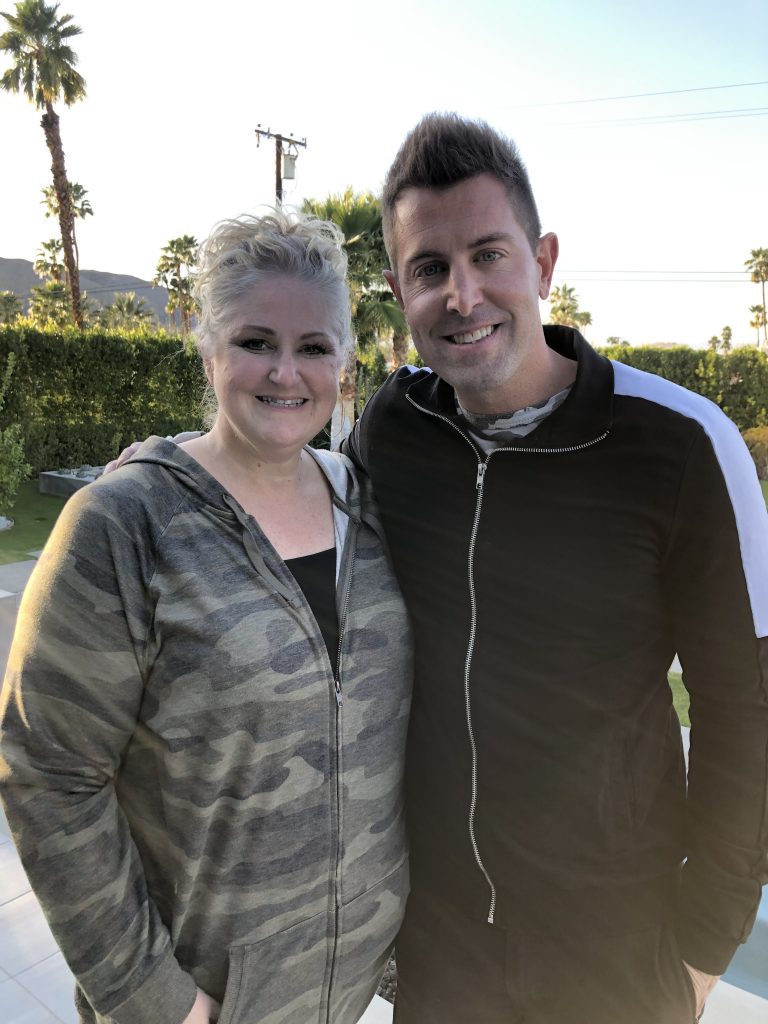
After college, she moved to Nashville and took a job with a production company. “We had an agreement with Word Music to produce at least two projects a year,” she recalls. “We did everything from arranging the music to contracting singers and orchestras. Then after the project was done and turned over to Word, we would then turn around and market it to the churches and do custom projects with their choirs and their singers. In those early years, I really learned a lot about the music industry as a whole on the production side and publishing and how that flowed over into church music. It was a really educational time in my life.”
In 2002, Sheets moved back to Ohio and spend the next three years caring for her grandparents, who were both battling cancer. “My grandfather also had dementia and it was very difficult to care for him,” she says. “My grandmother had all of her mental faculties, but her body was just breaking down and she could not care for him. So I left Nashville, went home and cared for them until 2005 when they both passed away.”
While living in Ohio, Sheets met a voice researcher at her church, who would change the course of her career. “Kerrie Obert was the medical arts director at the Ohio State University Voice and Swallowing Disorders Clinic and she also was a part of a team of researchers who were developing a vocal training model that was based in the anatomy and physiology,” Sheets says. “I met her at church and we became friends. I also became very interested in the research that she was doing and spent several years with her basically being mentored by her and given opportunities to see the clinical side of voice as well as the professional performance side of voice.”
That time profoundly shaped Sheets’ approach to vocal coaching. “Coming out of college, I felt like there was a little bit of a disconnect between the classical traditional training that I had received and commercial pop music and what was going on,” she says. “It wasn’t until I spent several years learning about the pieces and parts of the voice and how they function together and what their biological functions are and what their secondary functions are—which are speaking and singing—how that all works, that my mind was really opened up to listening to the voice in a different way and understanding how the parts and pieces worked together to produce tone and then how important unique vocal characteristics are to an artist.
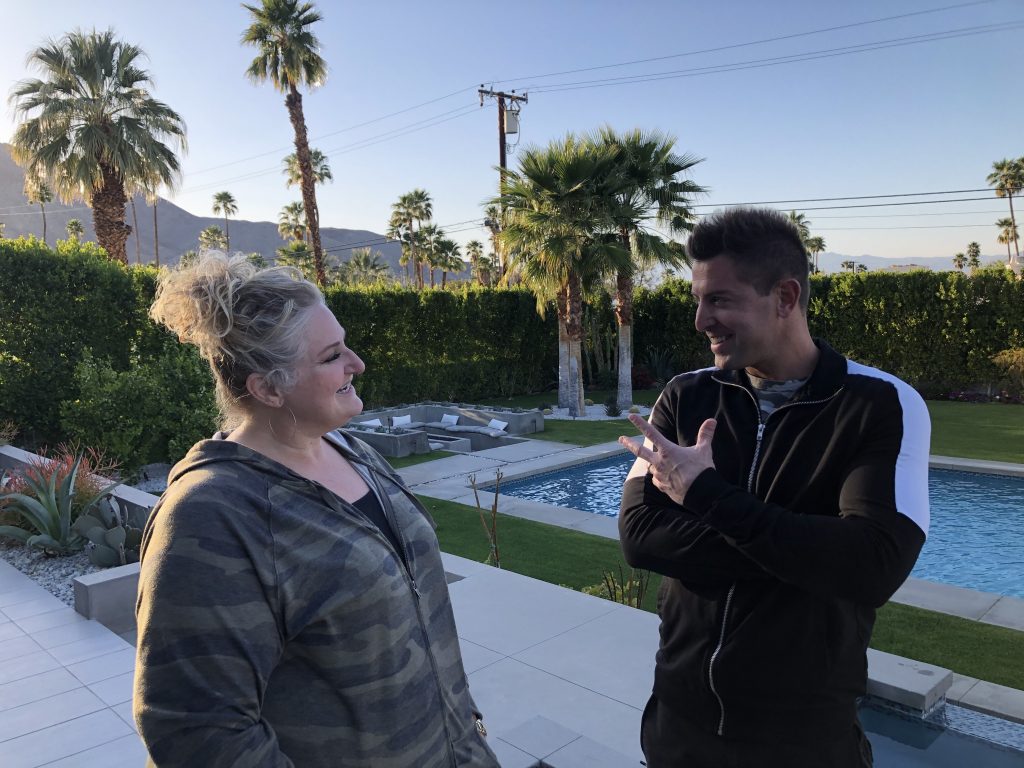
“When you use a training model that is sort of one-size fits all, often times what happens is the unique characteristics of the voice disappear,” she continues. “It seems like everybody kind of sounds like everybody else, but we know from working with labels and with artists, it’s all about the unique way that somebody says something or sings something. It’s a unique sound. It’s a unique voice that connects with an audience and if it’s my job to coach that person, it’s not to coach the uniqueness out of it, it’s to keep it and figure out how to do that in a way that prolongs their career and that uniqueness is maintained across records and songs. When you do a lot of training to clean things up and make it slick, the uniqueness disappears and it’s boring.”
While working with Obert, Sheets conducted workshops throughout the U.S. and Europe. It was a workshop she did for Journey Church in Nashville that led her back to Music City. “They rented me a little spot and I was working with their singers and some other singers locally that wanted to come and learn a little bit more about this voice training model,” she says.
While at Journey Church, she ended up with a surprise hit that was embraced by churches everywhere. It all started with an album that the church recorded to raise money. “We were working on a capital fund to build a church and I knew how to basically how to produce a record for a church and make money off of that in order to fund a capital campaign. So we ended up doing a record of hymns and worship songs,” she says. “I had come home and I had gone up to my room and I was just exhausted. Normally, I would read something from my Bible, but I started reading hymn texts and I was reading through a song called ‘Draw Me Nearer’ and I realized that as I was reading it, I was singing a different melody and we ended up singing it at my church. We put it on this little record and it just went crazy. We were getting emails and letters from places like Alaska and Canada where they got a hold of this song and people were giving testimony about how it changed their life. Cindy Wilt at Word Publishing signed that song as a single song with Word in 2005 it became one of their top anthems.”
Meanwhile Sheets’ reputation as a vocal coach was growing, and she was contacted to work with Diamond Rio lead vocalist Marty Roe. “They actually wrote about it in their book called ‘A Beautiful Mess’ about how basically a one-day meeting with Marty changed things for them,” Sheets says. “I had listened to some live recordings and because I understand how tone is made with the larynx, and the way things are manipulated, there are certain acoustic sounds that change with different manipulations of the structures of the head and neck. I could tell when Marty was singing that what would be considered the dorsum and the root of tongue, which is the part of the tongue that is in the throat, that he was pulling back with his tongue. The problem with that is when you sing high, the larynx—the whole structure—rises and it has to, but if your tongue that is connected to the larynx is anchored and tight and there’s not freedom in the tongue, then that invites tension and constriction. I knew that if I could help him, give him some triggers to figure out how to release his tongue that things would open up for him.”
They did and soon word was getting around that Sheets was a problem solver for artists battling voice issues. Not long after, she found herself working with Tenth Avenue North, a new Christian band whose lead vocalist Mike Donehey was having difficulty just as the band’s first single was releasing and they were slated to go on tour opening for MercyMe. On the opening night of the tour, Provident Music Group chairman Terry Hemmings called Sheets to thank her and let her hear the five-minute standing ovation for Tenth Avenue North. Soon after, Sheets was working with Brandon Heath, Matt Maher, Casting Crowns, Natalie Grant and other major Christian music artists.
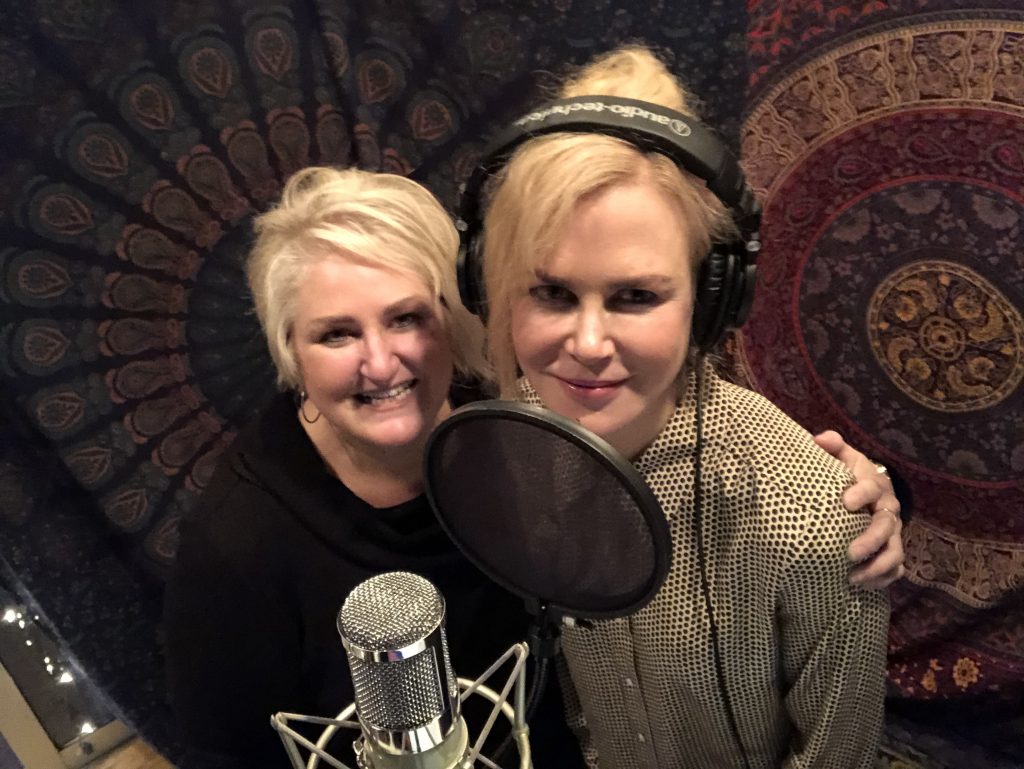
These days, Sheets has worked with the biggest names in both country and Christian music as well as others in the entertainment field such as Academy Award winning actress Nicole Kidman. It started with a phone call from her husband Keith Urban. “Keith had called me about working with their kids. I ended up working with their children and then Nicole had a couple opportunities last year to do some singing. The first one was with ‘The Prom,’ which is a musical, and so she called me and said, ‘Hey, I want to work with you on this movie.’ Then the other thing that she did last year was ‘The Undoing’ on HBO… The main producer asked her to sing the opening title sequence and I got an opportunity to produce that vocal. So I not only coached her, but actually produced the vocal for that. I really love doing vocal productions,” says Sheets, who has also produced vocals for Williams.
“I have to give kudos to Keith,” Sheets continues. “When I was working with Nicole in the studio, he was there for part of the time and never said a word. He just sat back and watched. I just have a lot of respect for that and he really liked what I did. I really appreciate Keith and his support of what I do. It’s an honor to work with them.”
When Sheets isn’t on the road or in the studio, she can often be found at her Nashville Tea Co. in Columbia, TN about an hour outside Music City. Among the delicious teas on the menu is the Voice Tea that Sheets herself created to help her clients. “Singers enjoy drinking tea and it helps soothe their voice but a lot of singers were and are using tea that maybe isn’t health beneficial for long-term or consumption on a daily basis,” Sheets says. “So I went on a mission to find something that was health beneficial that singers could drink all the time, that wouldn’t have adverse health issues. I really didn’t find anything that I felt satisfied with so I started doing research. Actually, I developed it when I was out on the Story Tour with Mark Hall from Casting Crowns, Natalie Grant, Nichole Nordeman, Todd Smith and Amy Perry from Selah, Jeremy Camp and Matthew West. They were my guinea pigs. I started just making it in my house for them, but then they started talking about it on social media and I started getting Facebook messages from church worship leaders and church singers about them wanting to buy this from me so I thought well maybe I have something here.”
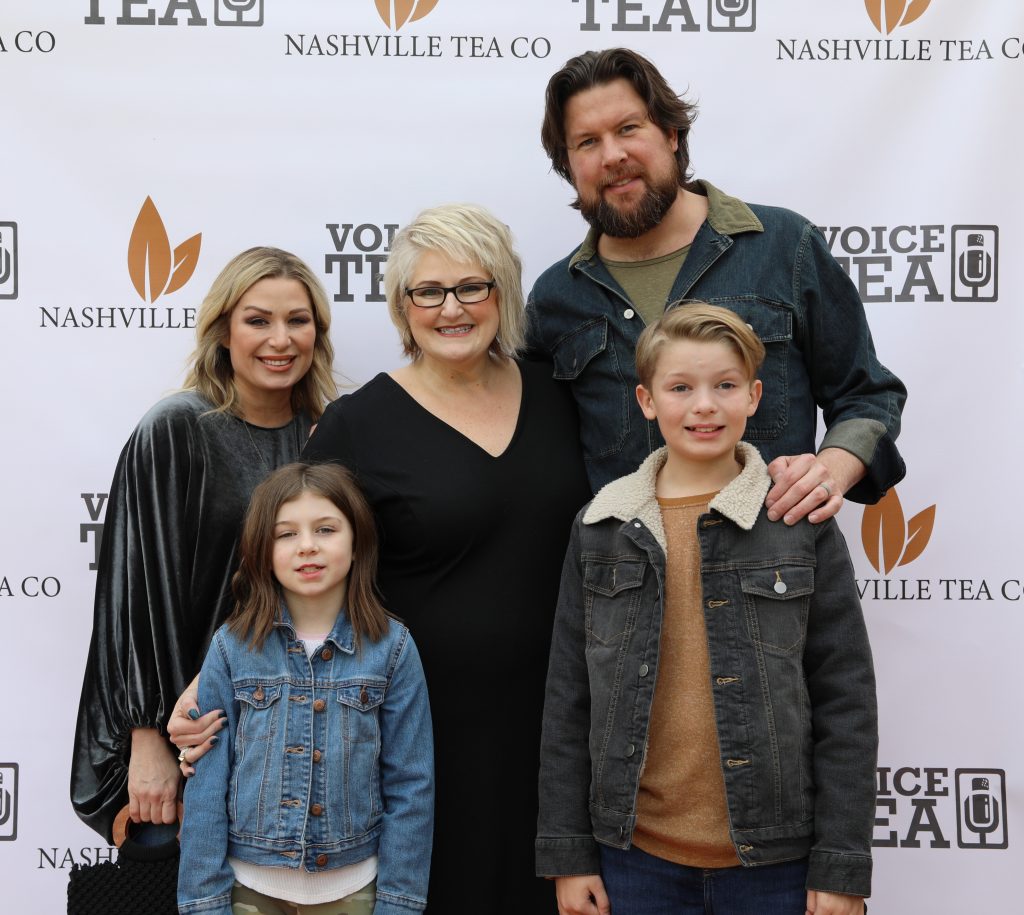
Hall posted a photo on social media holding a bag of Voice Tea and saying he never took the stage without it. Soon Sheets had more orders than she could handle, but she sought advice and began growing her fledging business. Last year, two weeks before the pandemic struck, she opened Nashville Tea Co. “Even in the midst of that, the Lord has really grown that business and kept us afloat and it’s just a blessing,” she smiles. “I just love it. It’s funny a lot of people that know me on the music industry side are shocked that I own a tea company, but here we are.”
As artists look forward to touring again after the pandemic, Sheets urges them be prepared. “If an athlete takes a year off, it’s going to take a minute for them to get back to the level that they once were,” she says, “so my advice has been start singing. Start working it out because you’re not going to be able to jump back up on stage and do 90 minutes of a performance without actually injuring yourself, which is what I fear may happen.”
She also says Zoom calls can affect the voices of both the famous and every day folks. “Zoom voice is a real thing,” she warns. “A lot of people have had some issues doing Zoom teleconferences, video conferencing, ending up with some weird vocal issues because of using that technology, weird craning of the head, placement of a camera. They want to get the best light and the best look and all of a sudden they are doing weird things with their head and it’s causing tension. I know that the Vanderbilt Voice Clinic is seeing a lot of people because of that, so just being aware of what are you doing with your vocal heath. Are there things that you are doing that are inviting tension to the voice? Are you not using it in ways that you’ve used it before and now you’ve developed habits that aren’t beneficial for live performances or singing or whatever?”
Sheets says there are important things anyone can do to take care of their voice. “Rest and hydration is tantamount to vocal health,” she says. “It’s important that you are getting proper hydration and taking care of your body and that you’re getting a good amount of sleep. All of those things effect how the voice works. And if you are a professional, you need to know how things work. Just because you are a singer doesn’t give you a pass card to not learn more about your voice. You may be a great songwriter and a great musician and you know a lot about the crafting of songs and words, how instruments work and how technology works, but if you don’t know how your voice works, how do ever think you’re going to be able to maintain and sustain a career using that instrument? You have to know how it works, so I think it’s super important to get educated on it.”


